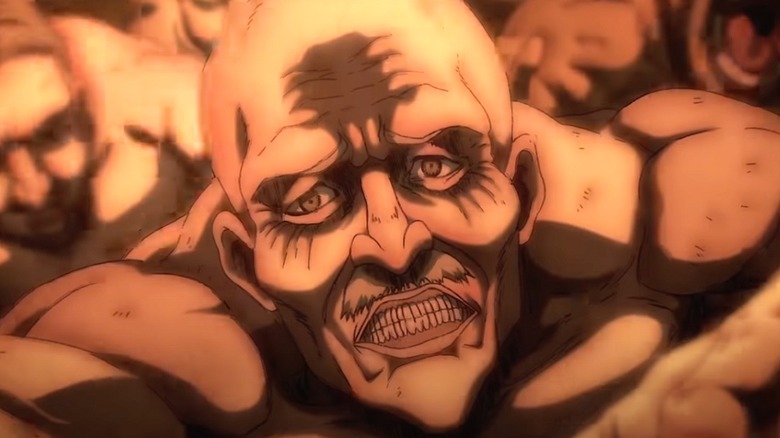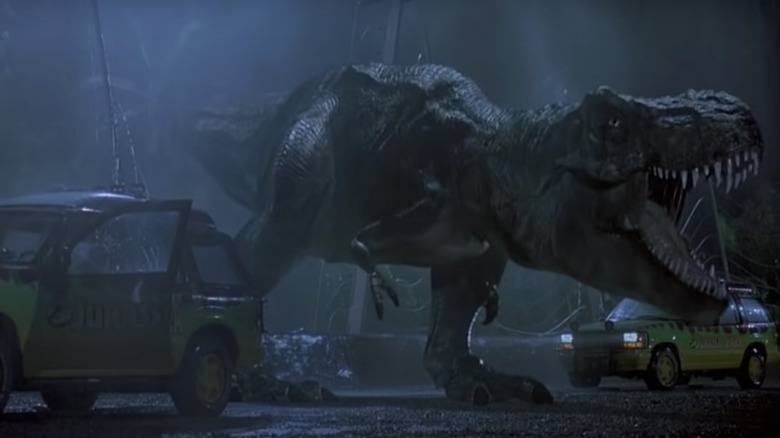How Jurassic Park Inspired Attack On Titan
"Attack on Titan" has become infinitely more complex than the simple David vs. Goliath story that Hajime Isayama conceived of when he began publishing his beloved manga in 2009. Since being adapted for television in 2013 — and introducing scores of new global audiences in the process — "Attack on Titan" has grown into a multifaceted treatise on heroism, oppression, and what it means to be human. To access such rich themes and singular world-building, Isayama understandably tapped into a deep well of influences.
"Attack on Titan" borrows from a number of real-world and fictional inspirations. In an interview with NHK Japan, Isayama explained that the wall was inspired by his mountainous hometown of Oyama, which fostered in him a desire to "escape" and explore the world beyond the mountains' boundaries (via SNK News). In addition to a number of literary influences, Isayama looked to "Jurassic Park" to inform his classic manga-turned-TV phenomenon.
Both Jurassic Park and Attack on Titan detail the destructiveness of man-made monsters
Per a translated version of an article from IGN Latin America, Hajime Isayama revealed that the manga, in general, was inspired by "Jurassic Park" and other similar works of fiction. Upon initial consideration, the comparisons are obvious, as each project explores the impact of massive, destructive monsters — or, as Isayama puts it, the threat of "being eaten by a huge thing" (via Otashift). Indeed, both the dinosaurs and the Titans can be very destructive, and both have been known to attack humans.
But the scientific and moral implications of "Jurassic Park" also ring true in "Attack on Titan." In the manga, it is revealed that a human being is within each Titan. The Titan, in a way, is that human's expression of evil. When the heroes begin to turn on one another, the definition of "monster" becomes increasingly muddled. Similarly, in "Jurassic Park," the dinosaurs aren't evil in and of themselves. Rather, they are a manifestation of man's hubris — a monstrous consequence of scientific ability and commerce gone unchecked.
With "Attack on Titan" set to conclude in the near future and "Jurassic World Dominion" having wrapped up the "Jurassic World" saga, each story has been given a chance to put forth its final subversions of the monster genre.

